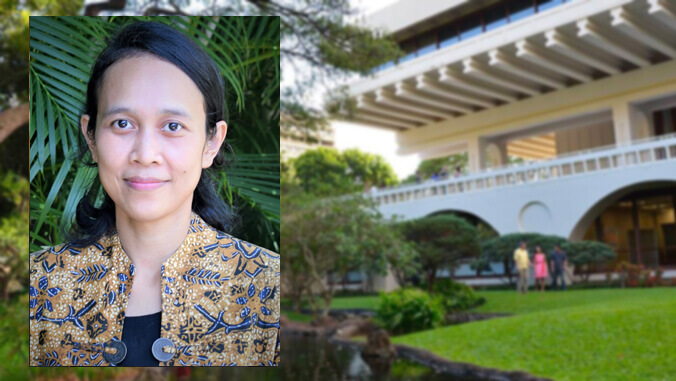Why and how Regional Elections matter
Results of the latest regional elections are very important to understand for two main reasons. First, they reflect the current strength of the political engine of each party in mobilizing voters across regions in Indonesia. The end game here is the electoral victory at the 2019 presidential and legislative elections which are just around the corner. The ability to deploy resources and utilize networks is critical for political parties in Indonesia to generate support for their candidates. Moreover, the results will be the basis for each political party in leveraging their position with regard to the impending political decisions where they will soon agree on coalition building, presidential nomination, and voters mobilization strategy.
Regional Elections result: Key takeaways
The results of 2018 regional elections revealed some new dynamics that are shaping Indonesian politics in the lead-up to the 2019 General Elections. The incumbent party, Indonesian Democratic Party of Struggle (PDI-P) showed poor performance during the election. The party lost in several key provinces such as in North Sumatera, West Java, and East Java and only won in four provinces including Central Java, a PDI-P stronghold. A similar fate also befell the Great Indonesia Movement Party (Gerindra) that only won in three provinces. The electoral losses of both PDI-P and Gerindra signal their weakened capability to mobilize their political resources and networks.
Despite PDI-P’s poor showing in the elections, Jokowi still managed to strengthen his position in several key regions. Candidates perceived as Jokowi’s supporters, such as Ridwan Kamil (West Java), Ganjar Pranowo (Central Java), Khofifah Indar Parawansa (East Java), and Nurdin Abdullah (South Sulawesi), triumphed in their respective regions. Those candidates have all stated their support for his re-election.
Meanwhile, the Functional Group (Golkar) party and smaller parties such as National Democratic Party (Nasdem), the United Development Party (PPP), National Mandate Party (PAN) and Prosperous Justice Party (PKS) achieved remarkable results in the elections as they secured victories in many provinces. Their triumphs demonstrate a decent mobilization capability combined with flexibility in forming coalitions as well as backing the right candidates leading to electoral success. This also boosts their standing for the upcoming 2019 General Elections and strengthens their bargaining position in the coalition building for presidential elections.
Overall, Golkar and smaller parties are the big winners of 2018 regional elections. In contrary, the two largest parties in Indonesia, PDI-P, and Gerindra suffered a blow. This certainly affects the coalition building and presidential candidacy for the 2019 General Elections.
Indonesian maturing voter
The victories of local technocrats in the key provinces such as Ridwan Kamil in West Java and Nurdin Abdullah in South Sulawesi as well as the victory of the blank box in Makassar indicate a distinct shift in voters’ preferences in the elections. Unlike the 2017 Jakarta Gubernatorial Elections where religious and racial narratives determine voters’ preference, Indonesia voters now appear to side with candidates with a proven track record regardless of their party affiliation and political narratives.
From six incumbent governors contesting in the regional elections, only two governors will remain in their positions namely Ganjar Pranowo (Central Java) and Ali Mazi (Southeast Sulawesi). This signals greater confidence in popular votes based on competence and no guarantee for incumbents to win the elections since voters now have enough information to evaluate the candidates.
The loss of political dynasties
The 2018 regional elections also mark the declining strength of a number of local political dynasties in provinces such as West Kalimantan, South Sulawesi, and South Sumatera. In West Kalimantan, Karolin Margret Natasha, the daughter of the previous governor, Cornelis, failed to continue her father’s leadership in the region that spanned for more than ten years. Similarly, Dodi Reza Alex Noerdin, the son of Alex Noerdin, failed to replace his father as South Sumatera Governor. Nurdin Abdullah has defeated few prominent families in South Sulawesi politics such as Mudzakkar family, Nu’mang family, and Limpo family. This reinforces our previous observation that voters are becoming more rational in evaluating the candidates.
Implications on coalition building and presidential candidates for 2019 General Election
The 2018 regional election results affect the bargaining positions of political parties for coalition building. In Jokowi’s coalition, PDI-P’s bargaining position is getting weaker. On the contrary, Golkar, Nasdem, and PPP’s positions are all becoming stronger, which will likely drive them to negotiate more favorable terms in Jokowi’s coalition. The current landscape is thus indeed favorable for Jokowi to gain and exercise more authority in selecting his coalition, while at the same time becoming more independent from PDI-P pressure.
Another advantage for Jokowi is his strengthened position in several key regions such as in West Java, Central Java, East Java, and South Sulawesi where his political allies have secured positions as the new governors. This has further extended Jokowi’s grip over those regions that can be capitalized in the 2019 elections. It will also be helpful for his second term if he is re-elected since he has allies that will help him execute his priority programs in the regions.
In the opposite camp, the victories of PAN and PKS in the regional elections also strengthen their bargaining position towards Prabowo and Gerindra. PKS, for instance, is asking Gerindra to pick one of its cadres as Prabowo’s vice president candidate or else it may form a new coalition with other parties like PAN and Democrat. As Gerindra needs PKS’ and PAN’s political engines to contest in presidential elections, refusing their demands will put the party in a vulnerable position and may even jeopardize Prabowo’s nomination as presidential candidate.
The agility to handle such political bargaining and power play dynamics will be a real test for Jokowi and aspiring presidents like Prabowo as it will determine their ultimate strength in the presidential race. For now, party negotiations are ongoing in the run-up to the deadline for nominating presidential and legislative candidates in early August. After that, things will be much clearer as party coalitions as well as their nominated candidates will be formalized.
* * *
Get your complete copy here.




